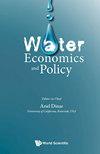Can Knowledge, Responsibility and Environmentalism Explain Preference Heterogeneity? A Latent-Class Probit Model Analysis for Plastic Pollution Abatement
IF 1.3
4区 经济学
Q3 ECONOMICS
引用次数: 0
Abstract
This study explores the impact of prior experiences, environmental concern and awareness levels on pro-environmental behavior in the context of mitigation of plastic pollution. Using survey and geo-location data after a tsunami and a monsoon season, this survey employs a latent class analysis through a Generalized Structural Equation Model (GSEM) to identify similarities between groups’ willingness to pay (WTP) to mitigate macroplastic pollution in riverbeds and beaches in Indonesia. Results show that more environmentally-conscious respondents were also more sensitive to the issue of pollution while having observed more plastic pollution also increases support for pollution mitigation. Proximity to polluted waterways also increased WTP, especially to urban participants. Overall, accounting for prior experiences, environmental concern and awareness levels does lead to statistical differences between classes, with those scoring higher in these categories being also more willing to monetarily contribute to mitigate that issue. The use of such an integrated latent class model (LCM) can help with disentangling drivers of preferences, especially in the context of determining levels of support for pollution abatement in a developing country.知识、责任和环境主义能解释偏好异质性吗?塑料污染治理的潜在类概率模型分析
本研究探讨在减少塑胶污染的背景下,先前经验、环境关注和意识水平对亲环境行为的影响。本调查使用海啸和季风季节后的调查和地理位置数据,通过广义结构方程模型(GSEM)采用潜在类别分析,以确定各群体为减轻印度尼西亚河床和海滩的宏观塑料污染而支付意愿(WTP)之间的相似性。结果表明,更有环保意识的受访者对污染问题也更敏感,而观察到更多的塑料污染也增加了对减轻污染的支持。靠近受污染的水道也增加了WTP,尤其是城市参与者。总体而言,考虑到之前的经历、环境关注和意识水平,确实会导致不同阶层之间的统计差异,在这些类别中得分较高的人也更愿意为缓解这一问题做出金钱贡献。使用这种综合潜在类别模型(LCM)有助于理清偏好驱动因素,特别是在确定发展中国家对减少污染的支持水平方面。
本文章由计算机程序翻译,如有差异,请以英文原文为准。
求助全文
约1分钟内获得全文
求助全文

 求助内容:
求助内容: 应助结果提醒方式:
应助结果提醒方式:


